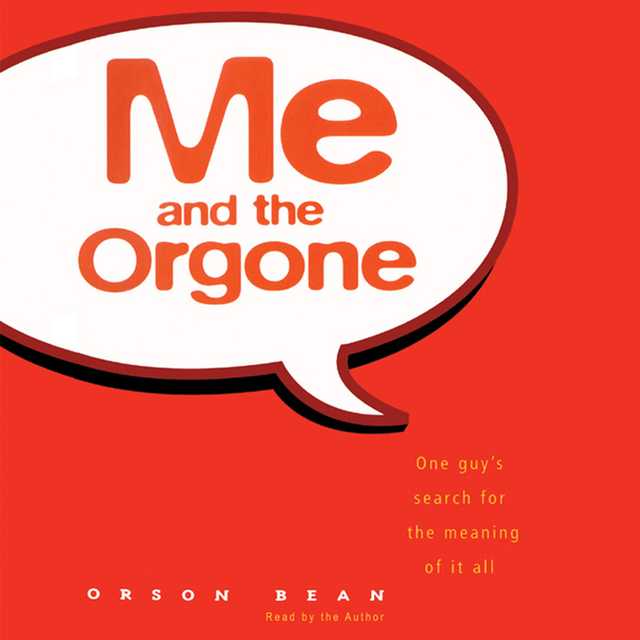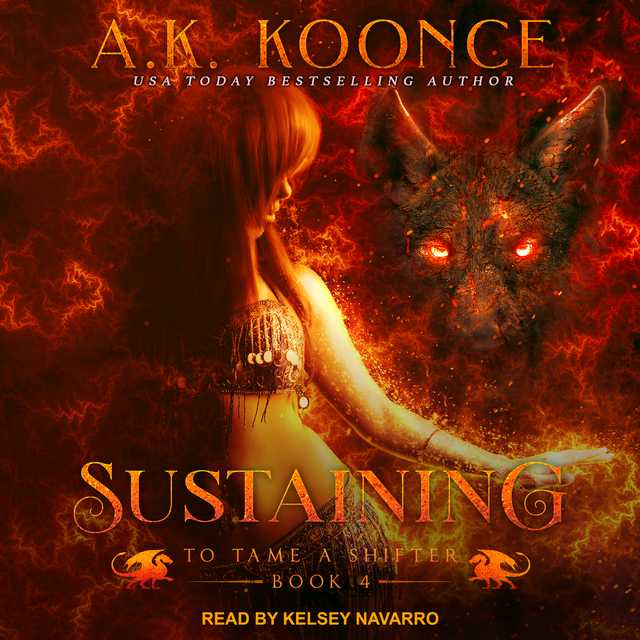The State of Affairs Audiobook Summary
“A fresh look at infidelity, broadening the focus from the havoc it wreaks within a committed relationship to consider also why people do it, what it means to them, and why breaking up is the expected response to duplicity — but not necessarily the wisest one.” — LA Review of Books
From iconic couples’ therapist and bestselling author of Mating in Captivity comes a provocative and controversial look at infidelity with practical, honest, and empathetic advice for how to move beyond it.
An affair: it can rob a couple of their relationship, their happiness, their very identity. And yet, this extremely common human experience is so poorly understood. What are we to make of this time-honored taboo–universally forbidden yet universally practiced? Why do people cheat–even those in happy marriages? Why does an affair hurt so much? When we say infidelity, what exactly do we mean? Do our romantic expectations of marriage set us up for betrayal? Is there such a thing as an affair-proof marriage? Is it possible to love more than one person at once? Can an affair ever help a marriage? Perel weaves real-life case stories with incisive psychological and cultural analysis in this fast-paced and compelling book.
For the past ten years, Perel has traveled the globe and worked with hundreds of couples who have grappled with infidelity. Betrayal hurts, she writes, but it can be healed. An affair can even be the doorway to a new marriage–with the same person. With the right approach, couples can grow and learn from these tumultuous experiences, together or apart.
Affairs, she argues, have a lot to teach us about modern relationships–what we expect, what we think we want, and what we feel entitled to. They offer a unique window into our personal and cultural attitudes about love, lust, and commitment. Through examining illicit love from multiple angles, Perel invites readers into an honest, enlightened, and entertaining exploration of modern marriage in its many variations.
Fiercely intelligent, The State of Affairs provides a daring framework for understanding the intricacies of love and desire. As Perel observes, “Love is messy; infidelity more so. But it is also a window, like no other, into the crevices of the human heart.”
Other Top Audiobooks
The State of Affairs Audiobook Narrator
Esther Perel is the narrator of The State of Affairs audiobook that was written by Esther Perel
Psychotherapist and New York Times bestselling author Esther Perel is recognized as one of today’s most insightful and original voices on modern relationships. Fluent in nine languages, she helms a therapy practice in New York City and serves as an organizational consultant for Fortune 500 companies around the world. Her celebrated TED Talks have garnered more than 30 million views and her international bestseller Mating in Captivity: Unlocking Erotic Intelligence is a global phenomenon that has been translated into nearly 30 languages. Her newest book is the New York Times bestseller The State of Affairs: Rethinking Infidelity. Esther is also an executive producer and host of the popular podcasts Where Should We Begin? and How’s Work? Learn more at EstherPerel.com or by following @EstherPerelOfficial on Instagram.
About the Author(s) of The State of Affairs
Esther Perel is the author of The State of Affairs
More From the Same
- Author : Esther Perel
- Mating in Captivity
- Publisher : HarperAudio
- Abraham
- American Gods [TV Tie-In]
- Dead Ringer
- House of Sand and Fog
- Prey
The State of Affairs Full Details
| Narrator | Esther Perel |
| Length | 11 hours 57 minutes |
| Author | Esther Perel |
| Category | |
| Publisher | HarperAudio |
| Release date | October 10, 2017 |
| ISBN | 9780062694553 |
Subjects
The publisher of the The State of Affairs is HarperAudio. includes the following subjects: The BISAC Subject Code is Counseling, Psychology, Psychotherapy
Additional info
The publisher of the The State of Affairs is HarperAudio. The imprint is HarperAudio. It is supplied by HarperAudio. The ISBN-13 is 9780062694553.
Global Availability
This book is only available in the United States.
Goodreads Reviews
Trish
November 23, 2017
Apparently eighty percent of the population has some experience with infidelity, whether through a parent, spouse, friend, or family member. Considering how hurtful and destructive such urges are, it is amazing most of us are still standing. Esther Perel has distilled her years of marriage counseling and study of infidelity to reveal fascinating insights that make enormous sense to me. She tells us that “In a surprising number of these cases, a direct line can be traced from an extramarital adventure back to our most basic human fear—the confrontation with mortality.”I would add a corollary that if the infidel (?) one who commits infidelity didn’t fear death before they became involved in an extramarital affair, they should after, for sure.I love the way Perel thinks. She is such an adult. When one is in the midst of handling an exposed infidelity, it is common to experience sadness, rage, jealousy, and diminished self-worth. Perel says we can feel these things if we want, it is normal, but it is probably more worthwhile to look at why one strayed, if one has the stamina for it.In this way, one may find one prefers one’s spouse to other possibilities, and can renew their vows in a fuller knowledge of one another, and a fuller knowledge of what it takes to make a marriage succeed. One of the things I notice about marriage is that sometimes the people involved forget that the spouse is a mystery and basically unknowable; that the spouse is an independent sexual being; that affairs often allow us to discover a new self, rather than merely a new sexual partner. Oftentimes it is that new sexual self that is so entrancing, not the new partner after all, e.g., “I feel alive.”.A couple of other things Perel points to are that we keep many secrets in a marriage, and perhaps infidelity is not the most damaging of these. She thinks that sometimes admitting to an infidelity may cause more damage than not, and one has to ask oneself what one’s motives are in revealing such a thing if it is not already discovered and is unlikely to be.While we often hear that revenge is sweet, in fact it is frequently the opposite. There is an important lesson to know about long-lasting feelings of vengeance: “If in the process of getting even you end up hurting yourself more than you punish the other, you gain nothing.” Feelings of stress and anger can make you miserable. Studies of romantic love discover that it is a physical addiction, similar in effect to cocaine or nicotine on the brain. Quoting Anthropologist Helen Fisher who has done fMRI studies on the brain in love: “weaning oneself off of obsessive thinking about a lost love…is akin to breaking a dependency on drugs.” Perel defines infidelity as including one or more of three components: secrecy, sexual alchemy, and emotional involvement. Towards the end of the book she explains that although women are used to being in touch with their emotional side and the multidimensionality of their sexuality (its subjectivity, its relational character, its contextual nature, and its reliance on a delicate balance of conditions), men rarely give themselves that freedom. There are so many myths surrounding the definition of male sexuality as being biologically imperative, uncomplicated, ever ready, and always in search of novelty but actually men and women are in fact more similar than they are different. Men may find themselves emotionally disengaging in direct proportion to the demands of their relational entanglements and the conflicting messages they are receiving about who they are and who they should be. “You don’t pay the hooker to come—you pay her to leave”—highlighting the pleasures of less emotionally complicated forms of sex.In the end, Perel says, it is usually a lack of real sexual communication in the midst of a loud and proud declaration of emotional transparency in modern intimacy that is most at fault for a drawing away from real intimacy. A successful marriage, I’m guessing, allows some of the mystery to remain. Two individuals agree to share lives; that they can leave at any time deepens the mystery. One needn’t do it, so when we do, there must be meaning. Communication is critical. And weathering a storm can unlock a few mysteries we tend to keep hidden, even from ourselves. “Every act of betrayal shares common features, but every experience of betrayal is unique.”Perel has Youtube videos of her most popular talks, and she is particularly good at cutting to the heart of relationships and fingering the sore spots. Most of us can find our own situations well-represented. Her examples of couples in treatment are diverse and distinct, and very interesting. I’d say listening to her is worthwhile even if it has never entered your mind to stray.
Liina
November 30, 2022
How very limited are our vocabulary and emotional intelligence when it comes to infidelity. Quick to use stereotyped responses and to protect the romantic ideal that, let's be honest, a large majority of people are not able to live up to or are unhappy while doing that. Esther Perel gets that. She has cut through the Affair Cake with a sharp knife during her decades-long practice as a psychotherapist, and she has quite a lot to tell about all the layers it hides. Her approach is refreshingly realistic. At the beginning of the book, she states that nowadays our one partner has to give us so many contradictory things and the expectations for the quality of the relationship so high that it is no wonder we are having trouble living up to those standards. Torn between the need for security and novelty at the same time trying not to lose the sense of "self" that so often gets diluted when there is not enough space between two people - those and other causes are discussed with different specific mechanics as why people stray and in the last parts - what happens when the unimaginable has happened? How do couples go on?She is not a judge and does not take sides. Instead, Perel is so very emphatic and humane that the tone she uses, is at least as worthy of a reason to read the book as the information it holds and the interesting case studies she shares. It is a difficult subject and one that people are very opinionated and often polarised about, but I think she has done a terrific job in giving a nonjudgemental view of it.
Eilonwy
August 08, 2022
Do you have a shelf for romance novels with Cheating Cheaters who are the worst of the worst? Do you think you know what all cheaters are like, or believe "once a cheater, always a cheater"? Esther Perel counsels couples in the crisis of discovered adultery, both together and separately. And what she's learned is that nothing is as simple as the conclusions we all jump to about infidelity. This was educational, insightful, and deeply empathetic. While having read this book will not ease the pain of learning that one's partner has been having an affair and lying and sneaking around, it may help people to communicate and to allow compassion for each other, and to avoid immediately deciding to end a long-term marriage that may be worth salvaging. I applaud Esther Perel for being willing to write this book about a subject no one wants to think about, talk about, or admit an interest in (believe me, I felt weird reading it in public). And it may inspire you to talk more with your partner about what your expectations for monogamy are, and how you achieve them. Definitely recommended.
Andreea
August 14, 2022
Cartea asta mi-a schimbat perspectiva 🤯E genul de carte pe care nu as fi citit-o când eram într-o relație. Cum adică sa "regandesti infidelitatea"?Am ajuns la Esther Perel prin "Inteligenta erotica", acum 3 luni. Iar la Cluj, într-o librărie mi-a sărit în ochi cartea asta. Sigur am mai trecut pe lângă ea de 336363 de ori. Doar ca nu a fost momentul ei. Nu as fi acceptat-o măcar, ce sa mai zic de a o înțelege.Câteva idei cu care am rezonat 👇"Toata lumea vrea sa știe cât la suta dintre oameni își înșală partenerul. Dar aceasta este o întrebare dificila pentru ca, mai întâi, trebuie sa răspunzi la o alta: ce înseamnă a insela? (...)" "Odată ce l-am găsit pe El/am găsit-o pe Ea suntem de părere ca nu ar mai trebui sa existe nicio nevoie, nicio dorința, nicio atracție pentru altcineva. (...) contractele noastre de închiriere sunt mult mai complexe decât contractele relaționale. Pentru multe cupluri, discuția consta maximum în cinci cuvinte: dacă te prind, ești mort.""Este ironic faptul ca unii oameni vor minimaliza implicarea emotionala pentru a reduce delictul (Nu a însemnat nimic!), în timp ce alții vor sublinia natura emotionala a legăturii, exact cu același scop (Nu s-a întâmplat nimic!)""Pe vremuri, monogamia înseamnă o persoana pentru toată viata. În ziua de azi, monogamia înseamnă o persoana acum, apoi alta, apoi alta.""Așteptările noastre privind căsătoria nu au fost niciodată mai mari ca în zilele noastre. Vrem în continuare tot ce trebuia sa ofere familia tradițională - siguranță, copii, proprietate, respectabilitate - dar acum vrem și ca partenerul sa ne iubească, sa ne dorească, sa fie interesat de noi. Trebuie sa fim cei mai buni prieteni, confident de încredere și amanți pasionali. (...) Vrem ca alesul nostru/aleasa noastră sa ne asigure stabilitate, siguranță, previzibilitate și sa fie de încredere. Și vrem ca aceeași persoana sa ne uimească, sa ne ofere mister, aventura și risc. Dă-mi confort și dă-mi tot ce mai bun. Dă-mi lucruri pe care le știu și dă-mi noutate. Dă-mi continuitate și dă-mi suprize. Îndrăgostiții din ziua de azi cauta sa aducă sub același acoperiș dorințe care s-au aflat întotdeauna în zone diferite.""In societatea noastră de consum, cheia este noutatea. Durata de viata este programata, astfel încât sa ne provoace dorința de a le înlocui, iar cuplul nu face excepție de la aceste tendințe. Trăim într-o cultura care ne ademenește continuu cu promisiunea a ceva mai bun, mai nou, mai plin de viata. Prin urmare, nu divorțam pentru ca suntem nefericiți, ci pentru ca ne gândim ca am putea fi mai fericiți decât în prezent."
Matthew
December 26, 2022
I really like Esther Perel. I think I’ve listened to all of the couples therapy sessions on her podcast. I am not well-versed with the couples therapist scene, but I feel like she surely must be one of the best French therapist-podcaster-author in the game right now, right?I’ve learned a lot from Perel over the past couple years, and much of it was summed up in this book. The most interesting part of the story, for me, was the fact that romantic relationships now play an outsized role in our sense of self. The story is something like this: back in the day, marriage served many purposes, including: strategic family alliances, merging material assets, setting up people who seem compatible, strengthening community ties, and maybe, if you’re very lucky, love and emotional intimacy. In the 21st century, we’ve stripped away all of those other reasons to get married, and we’ve also transformed our society from deeply communal—living in close proximity, around family all the time, with lives mediated by religious organizations or shared work spaces—to highly atomized. As a result, marriage is now just about two individuals’ compatibility. It’s about emotional attunement, desire, sexual chemistry, fulfilling another’s deep needs, learning their love languages, being their primary support system, having an intellectual equal, and much more. In the absence of a community or broader social system to contain the marriage, the relationship is exclusively about the two people within it, and therefore factors enormously into their sense of purpose and self in life. Who we date becomes a matter of personal identity and expression. When relationships end, it can feel like the most important part of our lives has been stripped away. And because relationships are often so stripped of community, it can feel that all of the burden of that relationship ending is borne by the two people in it. Oof. No wonder these things are fraught.(Side-note: is this feminism’s fault? Perel seems to suggest so? She says something like “Western women are more emancipated, but more of their self-worth is tied up in relationships.” I really do not know how to feel about this.) A related idea is that we simply demand too much of our partners. In many 21st century relationships, our partner needs to be our best friend, our therapist, our co-parent, our logistics coordinator, our lover, and our primary emotional support. Plus, we all live twice as long as we used to. So this one person has to be our everything, forever, where “forever” is like until age 97. PLUS we now have access to the best parts of everyone else’s relationships through social media, and an infinite supply of potential alternative partners through dating apps. We have the option to constantly wonder whether we could be happier, and the possibility of lifelong optionality.All of this feels pretty untenable. No wonder people cheat! It seems there are a number of ways out of this situation. One that’s increasingly popular is polyamory. Personally, I am skeptical, but I’ve got nothing but respect for the people who do it successfully. The other solution is simply to ask less of our romantic relationships. In an ideal world, we would surround ourselves with vibrant, nurturing communities and tight, close-knit friendships. Our relationships would be embedded in a broader web of strong and loose ties. Entering a romantic partnership would cease to feel like shopping around for the perfect product, which we then take to the repair shop (Esther Perel’s couch) when it’s not giving us the results we’d hoped. Or maybe, I dunno, we do arranged marriages? Or find someone whose family’s assets merge well with our own? (Disclaimer: I am single and therefore have no leg to stand on here.)Another key idea that comes up often in Perel’s work is that sometimes it’s good to not know everything about your partner. We’ve somehow gotten it in our heads that healthy relationships are rooted in total transparency. But Perel suggests (especially in her previous book, Mating in Captivity) that eroticism is rooted in uncertainty, the dance between proximity and distance, the vulnerability of desire. These things are very difficult when you are sharing a bathroom and credit card and medical insurance with someone. In fact, says Perel, one of the main reason people have affairs in the first place is because they want to sleep with someone who has absolutely nothing to do with the other parts of their life (which they are generally happy with!).This also seems like a lesson that was very salient in the second season of The White Lotus (spoiler alert!!). We initially view Harper and Ethan as a healthier couple than Cameron and Daphne becaus they are honest and transparent with each other, and more importantly, they don’t cheat (even though their sex life has fizzled). But then by the end of the series, we cannot help but wonder whether the extramarital shenanigans were actually the spark that rekindled Ethan & Harper’s relationship.This book was good, but is really worth reading as one entry in a much larger oeuvre that includes Perel’s podcast (Where Should We Begin) and her other book. I think that these things paint a combined picture of a worldview about cheating and relationships that feels worthwhile to understand. It’s a non-judgemental portrait of the reasons people cheat and the ways that cheating can both destroy and empower relationships. This book equipped me with the language and tools to understand why people cheat, led me to be more sympathetic to more styles of relationship, opened my eyes to why romantic relationships today are so deeply tied to the core of our identities, and showed me there could be another way.
BookOfCinz
September 02, 2019
I remembering watching Esther Perel's TedTalk on infidelity and loving it so much even though I am not married or was ever in an affair. I started listening to her podcast Where Should We Begin? and I devoured the two seasons. I cannot get over real and important that podcast and this book is. As Perel puts it, "this is not just a book about infidelity... I hope to engage you, the reader, in an honest, enlightened, and provocative exploration of modern relationships in their many variations. Enlightened I am. Perel really gave an insightful look into modern relationships not just marriage. I think everyone should read this book because there is something for everyone in this book- especially if you are considering marriage. I liked that Perel spoke about couples who get married without having a conversation about what fidelity looks like for them etc. One thing that really stood out for me and a point I cannot shut up about is this Infidelity is a direct attack on one of our most important psychic structures: our memory of the past. It not only hijacks a couple’s hopes and plans but also draws a question mark over their history. If we can’t look back with any certainty and we can’t know what will happen tomorrow, where does that leave us? A book I cannot stop recommending.
Devina
August 08, 2021
We have a set of assumptions about relationships and those who cheat, and more often than not, we condemn cheaters and refuse to hear any explanation. Through this book, Esther Perel wants us to have a conversation that we most certainly won't by the time an affair has taken place: to listen to the cheater's story and understand the reasons behind the transgression, so that we might have compassion or forgiveness, if not radical transformation in the relationship altogether.Perel, who's a relationship therapist, has sat down with countless people who have been affected by an affair, from the cheater, the victim, to the other woman/man. She argues that while cheating is an unilateral move by one party in the relationship, in most cases, everyone is responsible for the context from which the affair arises. Dubbed as the symptom theory, an affair is a wake up call for the couple that shakes them out of domestic stupor.Another interesting point from the book is that an affair reveals says more about the person than the relationship itself. It's not only in the sense that when we're depressed or grieving that we make poor choices that lead to the affairs, but also in the sense that our upbringing shapes our views on relationships, loves, and emotional intimacy so greatly that we behave a certain way in a relationship. When you look at a serial cheater, it's better to understand where they're coming from than to simply pass judgement on what they've done.If it's not obvious already, the book changes my mind about relationship and infidelity. Not only does the author emphasize on compassion instead of judgment when it comes to infidelity, she also establishes quickly that our notion of relationship and marriage has changed drastically throughout the time. Previously, a marriage is a practical affair and not necessarily an emotional one, but now we put so much meaning and weight to a relationship or marriage, that once a crack shows up in the supposedly ideal person or connection, the whole castle crumbles down.Perhaps, one of the most important takeaways from the book is this: "The One" is a person too, who is as flawed and capricious as you are. It's easy to pass judgement on someone else's behavior, but understanding the reasoning behind the action without falling to mere justification can help us build a stronger relationship in the long run.
Emily
April 22, 2021
4.5 stars. I dove into this book to explore my own values and assumptions about infidelity and relationships, especially as a way to give me language to discuss what is important and fearful about marriage as we know it today. I just loved how it opened my mind to giving grace, curiosity, and clarity to marriage, and I love the emphasis on clear communication. For me, the realization that almost every relationship develops the patchwork of its boundaries and assumptions by “trial and error” seemed to be the most human and meaningful way to put it.
Frequently asked questions
Listening to audiobooks not only easy, it is also very convenient. You can listen to audiobooks on almost every device. From your laptop to your smart phone or even a smart speaker like Apple HomePod or even Alexa. Here’s how you can get started listening to audiobooks.
- 1. Download your favorite audiobook app such as Speechify.
- 2. Sign up for an account.
- 3. Browse the library for the best audiobooks and select the first one for free
- 4. Download the audiobook file to your device
- 5. Open the Speechify audiobook app and select the audiobook you want to listen to.
- 6. Adjust the playback speed and other settings to your preference.
- 7. Press play and enjoy!
While you can listen to the bestsellers on almost any device, and preferences may vary, generally smart phones are offer the most convenience factor. You could be working out, grocery shopping, or even watching your dog in the dog park on a Saturday morning.
However, most audiobook apps work across multiple devices so you can pick up that riveting new Stephen King book you started at the dog park, back on your laptop when you get back home.
Speechify is one of the best apps for audiobooks. The pricing structure is the most competitive in the market and the app is easy to use. It features the best sellers and award winning authors. Listen to your favorite books or discover new ones and listen to real voice actors read to you. Getting started is easy, the first book is free.
Research showcasing the brain health benefits of reading on a regular basis is wide-ranging and undeniable. However, research comparing the benefits of reading vs listening is much more sparse. According to professor of psychology and author Dr. Kristen Willeumier, though, there is good reason to believe that the reading experience provided by audiobooks offers many of the same brain benefits as reading a physical book.
Audiobooks are recordings of books that are read aloud by a professional voice actor. The recordings are typically available for purchase and download in digital formats such as MP3, WMA, or AAC. They can also be streamed from online services like Speechify, Audible, AppleBooks, or Spotify.
You simply download the app onto your smart phone, create your account, and in Speechify, you can choose your first book, from our vast library of best-sellers and classics, to read for free.
Audiobooks, like real books can add up over time. Here’s where you can listen to audiobooks for free. Speechify let’s you read your first best seller for free. Apart from that, we have a vast selection of free audiobooks that you can enjoy. Get the same rich experience no matter if the book was free or not.
It depends. Yes, there are free audiobooks and paid audiobooks. Speechify offers a blend of both!
It varies. The easiest way depends on a few things. The app and service you use, which device, and platform. Speechify is the easiest way to listen to audiobooks. Downloading the app is quick. It is not a large app and does not eat up space on your iPhone or Android device.
Listening to audiobooks on your smart phone, with Speechify, is the easiest way to listen to audiobooks.






























